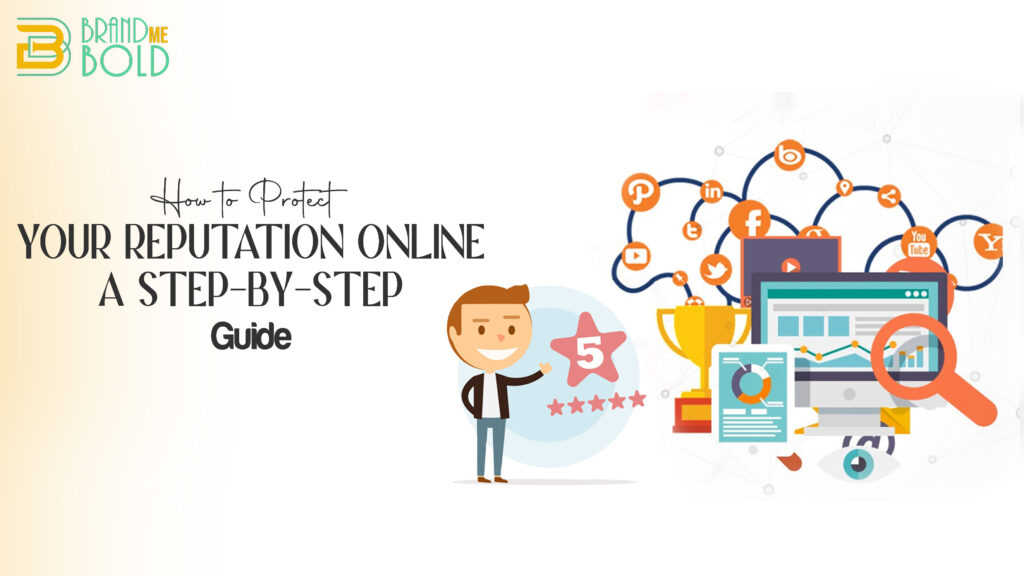Your online reputation is just as imp as your reputation in real life maybe even more so. Whether you are hunting for a job, running a small business or just trying to build your personal brand, people will Google you. What they find can either open doors or close them.
That’s the reason why taking care of your online reputation is particularly important right now. If you’ve never thought about it before let this be your friendly reminder. In this guide, we will share simple steps to help you manage and improve your reputation online.
Step 1: Know Where You Stand Online
You need to be aware before you can change anything. If you don’t know about something you can’t protect or fix it.
Here is what to do:
- Open an incognito window and Google your full name.
- Look through the first 2–3 pages of search results.
- Explore social media platforms, news articles, blogs and public records.
Take note of anything negative, outdated or irrelevant. This is how you appear online to others before you actually meet them.
You can also use Google Alerts with your name to learn of any updates about you online. If you do this, you can tell right when something new appears, whether it’s good or bad.
Step 2: Remove What You Can
Once you’ve identified any problematic content then take the action quickly.
Here is how to clean things up:
- Delete or deactivate unused or old social media profiles.
- Adjust the privacy settings so only friends can view your posts.
- If a website has incorrect or damaging information contact the site owner to request removal or updates.
When it comes to content you don’t control, professional Remove Negative Content Services can help. They help with getting rid of information you want to delete that can’t be removed by itself.
Remember: what shows up online doesn’t always tell the whole story so don’t hesitate to take steps to make sure your digital presence truly reflects who you are today.
Step 3: Build a Positive Digital Presence
Once you’ve cleared out the bad after that it’s time to build the good. Think of it like planting the new flowers where weeds once grew.
Start creating and sharing:
- Having a personal website or blog is like having your own corner of the internet it is a space where you control the story. You can highlight your work as well as share your skills and talk about your achievements in your own words. Plus, it shows the initiative and professionalism which can really impress employers or clients.
- Posts on the LinkedIn or Medium about your industry insights or about the personal experiences.
- Sharing your thoughts in online forums or in the communities where your expertise stands out is a great way to build a positive online presence. Whether you are answering questions, offering advice or just being helpful, these contributions show others what you are passionate about and they help shape your digital identity in a good way…
This is where BrandMeBold can help you build an authentic, positive digital presence. The more helpful, informative and positive content you share, the more control you gain over how you appear online.
This not only helps in personal online reputation management but also gives people reasons to trust and also engage with you.
Step 4: Master Social Media
Social media is a powerful platform that can either help or even hurt your reputation.
Do this:
- Keep your profiles professional especially on platforms like LinkedIn and Twitter.
- Share content that reflects your values, interests and the expertise.
- Avoid posting anything that could be offensive or misleading or too personal.
Whenever you use platforms like Instagram or TikTok, make sure your brand of content reflects your true nature in a good way. Feel free to let your human side show—it’s what people enjoy best.
Step 5: Consistently Monitor Your Reputation
An excellent online reputation can’t be achieved just once. It is important to watch it closely.
Use these tools and techniques:
- Set up Google Alerts for your name, your business or your brand.
- Use tools like Brand24, Mention or others to track mentions across the web and social media.
- Regularly review your digital presence to make sure that everything is up to date and accurate.
If keeping track of everything online feels like too much, you are not alone. That is where professional Online Reputation Management Services can step in—they’ve got your back 24/7 so you can stress less and focus on what matters most.
Step 6: Respond to Negative Content Thoughtfully
Negative content or criticism online can happen to anyone. The bestest thing you can do is to stay calm and respond smartly.
Here’s what you can do:
- Respond politely if it is a misunderstanding.
- Apologize if necessary and show you’re taking steps to fix the issue.
- Don’t argue publicly try to move the conversation to private channels.
Your response to negativity says a lot about your character. By showing maturity and professionalism you actually improve your personal online reputation.
Step 7: Collaborate and Build Your Brand
One of the most bestest ways to strengthen your online presence is by teaming up with others.
Consider:
- Working with the trusted companies for Brand Collabs and Sponsorships.
- Sharing the guest blog posts or being featured in online interviews.
- Partnering with the creators or the influencers who align with your values.
Partnering with others helps you be seen by more people and also makes your personal brand appear more credible.
If everything is done correctly in collaborations, they can help positive results dominate in search results, overtaking or exceeding any outdated or negative links.
Step 8: Focus on SEO for Your Name
Even if you are not a digital marketing pro understanding a little Search Engine Optimization (SEO) can go a long way in protecting your online reputation.
Here’s how SEO helps:
- It helps positive content rank higher in search results.
- It pushes less desirable content further down (where fewer people see it).
- It boosts the visibility of your blog, website or LinkedIn page.
If you’re not sure how to start, explore professional Search Engine Optimization Services that tailor strategies for personal brands or professionals.
And don’t forget to link your name or content with relevant topics. For instance if you are a photographer then optimize your profiles with keywords like “portrait photographer” or “freelance photo editor.”
Step 9: Stay Educated and Updated
The internet changes constantly. Algorithms, platforms and online behavior evolve every day. To keep your online reputation protected make continuous learning part of your routine.
What you can do:
- Follow top Blogs about online reputation and digital branding.
- Join online groups or forums related to your career or industry.
- Subscribe to newsletters that share updates on privacy laws, SEO and social media.
We recommend reading What Is Personal Online Reputation Management And Why Do You Need It? and Examples of Online Reputation Management Crises and How Experts Can Solve Them, two excellent reads from our blog that can guide your journey even further.
Wrapping Up
Managing your online identity can seem difficult at the start but it’s something that deserves your attention. By being proactive, consistent and authentic you can create a digital presence that opens the doors and reflects the real you…
Let’s face it—people are Googling you. Make sure what they find is something you’re proud of.
BrandmeBold is here to support you every step of the way. Our dedicated team provides personal branding Services to help you shine—naturally and strategically.



